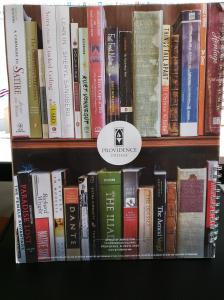I’ve been reminded recently, in a number of random ways, of just how quickly time flies. For instance, Facebook reminded me the other day that it has been five years since my son Caleb gave me my first and only tattoo. “That can’t possibly have been five years!” I immediately thought—but then on second thought . . . it made perfect sense.  Caleb tattooed my beloved dachshund Frieda on my left arm for my sixtieth birthday, and I just celebrated my sixty-fifth birthday a few weeks ago. Frieda died two-and-a-half years ago, but her likeness is still vibrantly hanging out where Caleb put her; my two Moderna Covid-19 vaccinations in the past month were inserted a couple of inches above her head.
Caleb tattooed my beloved dachshund Frieda on my left arm for my sixtieth birthday, and I just celebrated my sixty-fifth birthday a few weeks ago. Frieda died two-and-a-half years ago, but her likeness is still vibrantly hanging out where Caleb put her; my two Moderna Covid-19 vaccinations in the past month were inserted a couple of inches above her head.
A few days ago, as I walked through the atrium area of our campus student center, I noticed a well-worn, spiral-bound copy of the Providence College guidebook laying on a ledge. This is the publication that provides an overview of many features and aspects of the college; it is distributed to prospective students and their parents when visiting campus. The next day as I walked through the atrium, the guidebook was still lying there. Assuming that it had lost its owner, I decided to take it. On the back cover was a photo of two shelves of books jammed full of well-worn texts from the ancient world to the present. “I recognize those books!” I thought—“those are my books!”
 One day several years ago (at least seven years), when I was the director of the large interdisciplinary, team-taught core program on my campus, the publications people were looking for a picture of well-worn books for the guidebook that they distribute to prospective students and their parents when visiting campus. They asked me if I could help, so I provided them with a picture, taken with my Android, of the top two shelves of one of my office bookcases. That picture is now the back cover of the college’s guidebook.
One day several years ago (at least seven years), when I was the director of the large interdisciplinary, team-taught core program on my campus, the publications people were looking for a picture of well-worn books for the guidebook that they distribute to prospective students and their parents when visiting campus. They asked me if I could help, so I provided them with a picture, taken with my Android, of the top two shelves of one of my office bookcases. That picture is now the back cover of the college’s guidebook.
Fellow graduates of St. John’s College and its Great Books program (we call ourselves “Johnnies”) will recognize many of these books. I purchased the Hamilton/Cairns “Complete Dialogues of Plato” on the top shelf and the McKeon “Collected Works of Aristotle” on the bottom shelf in Fall 1974 at the St. John’s Santa Fe bookstore for $10 each new. At the time, I thought the price was outrageously high. At the risk of shameless self-promotion, I have to note that I am the author of the book on the top shelf that is appropriately located three books to the right of Plato and just left of Dr. Seuss. It is a textbook that I wrote as a non-tenured junior faculty member with the second year philosophy component of our interdisciplinary program in mind. I had no idea at the time that I would be the director of that program a dozen years later.
I still have all of these books, of course, although arranged differently with a few hundred other books in a different office (I am no longer the program director, thank God). Don’t get me started on the thousands of books we have at home. As I flipped through the pages of the guidebook, I came across something else that reminded me of how time flies. A few pages in was a brief essay titled “What Can You Do With a Liberal Arts Education?” The essay was written by . . . me, of course.
I wrote this essay, which I had entirely forgotten about, six or seven years ago in response to a request from the marketing and communications people who, in conjunction with the publications folks, put such guidebooks together and make them a reality. These folks knew that as the director of the big interdisciplinary program, I fielded this question on a weekly, sometimes daily basis. I suspected that they might reject what I wrote in response to their request, because in essence I said that the question that is the title of the essay is the wrong question to be asking. Here, with no editing, is what I wrote:
In a world focused on the bottom line—a world in which we demand tangible and verifiable returns on our investments—it makes sense to wonder about the real-world return on an investment involving the commitment of thousands of dollars and hours.
But in the world of education, particularly a liberal arts education, something of far greater importance and magnitude than the bottom line is at stake. Almost 2,500 years ago, Aristotle provided the framework for the shift in focus I have in mind. In his moral philosophy, Aristotle argues that all persons ultimately want the same thing—to live a life of human flourishing, a life in which one’s best human potentials are actualized. The question is, what is the best way to think about living such a life? The best question to as, Aristotle suggests, is not “What do I need to do?” if I want to live such a life. Rather, the correct question to ask if I want to live such a life is “What sort of person should I be?”
The life of human flourishing depends far more on the sort of person one is than on what one is doing, and is more a matter of continual character development than of supply and demand. Bringing Aristotle’s insight to the issue of a liberal arts education, the best question to ask is not “What can I do with a liberal arts education?” but rather, “What sort of person will a liberal arts education help me become?”
The desire to learn, to pursue the truth at all costs, cannot be taught. I can only be awakened by example, shown as a living reality. The greatest task of a teacher is to demonstrate, by her or his own example, the desirability and attraction, the unparalleled invigoration and joy, of being a lifetime learner and pursuer of truth. Our greatest desire at Providence College is that the classroom be a dynamic laboratory for the cultivation of learning, the nurturing of growth, and the shaping of character in those students we are privileged to welcome for a short time, then send into the world as ambassadors of human flourishing.
I wrote this several years ago, but I’m pleased to realize that I wouldn’t change a word of it now. My career, which hopefully has a number of years remaining, but fewer years than have already passed, has been dedicated to the value of lifetime learning, to the conviction that a primary feature of the life of human flourishing is a dedication to never being “all set” (to use a common Rhode Island phrase). These words from Simone Weil have served as the touchstone of what I do in the classroom for the past thirty years:
The intelligence can only be led by desire. For there to be desire, there must be pleasure and joy in the work. The intelligence only grows and bears fruit in joy. The joy of learning is as indispensable in study as breathing is in running.













